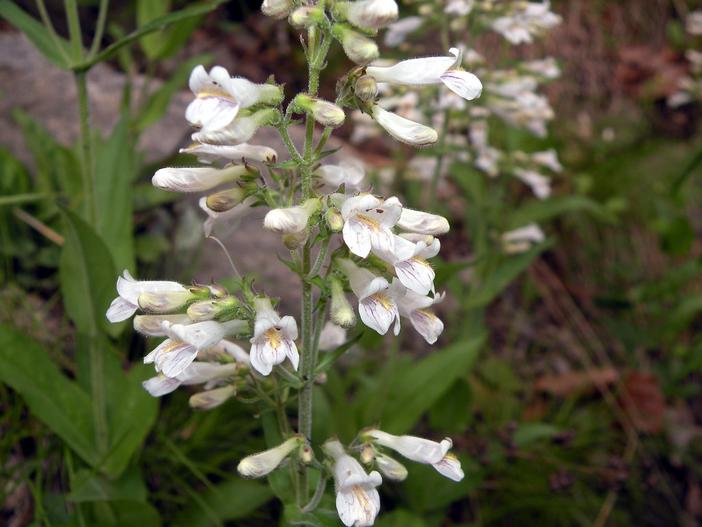Pale Beardtongue
(Penstemon pallidus)
Pale Beardtongue (Penstemon pallidus)
/
/

Doug McGrady
CC BY 2.0
Image By:
Doug McGrady
Recorded By:
Copyright:
CC BY 2.0
Copyright Notice:
Photo by: Doug McGrady | License Type: CC BY 2.0 | License URL: https://creativecommons.org/licenses/by/2.0/ | Uploader: Doug_McGrady | Publisher: Flickr






















Estimated Native Range
Summary
Penstemon pallidus, commonly known as Pale Beardtongue, is a deciduous perennial herb native to open woodlands, glades, and prairies in the Central and Eastern United States. It typically grows to a height of 2-3 feet (0.6-0.9 meters) and a width of 1-2 feet (0.3-0.6 meters). The plant has a clumping form with erect stems and lance-shaped leaves. From late spring to early summer, it produces tubular white flowers with a pale lavender wash and hairy stamens, which are attractive to bees and butterflies. The flowers are moderately showy and add a delicate texture to garden settings.
Pale Beardtongue is valued for its drought tolerance and ability to thrive in poor soils, making it a low-maintenance choice for gardeners. It is often used in wildflower gardens, native plantings, and as a border accent. This species prefers full sun to part shade and requires well-drained soils. While it is adaptable to various soil types, it performs best in sandy or rocky soils. Pale Beardtongue is not commonly affected by diseases or pests, but root rot can occur in poorly drained soils. It is not known for aggressive roots or invasiveness. Gardeners should be aware that it may self-seed if conditions are favorable.CC BY-SA 4.0
Pale Beardtongue is valued for its drought tolerance and ability to thrive in poor soils, making it a low-maintenance choice for gardeners. It is often used in wildflower gardens, native plantings, and as a border accent. This species prefers full sun to part shade and requires well-drained soils. While it is adaptable to various soil types, it performs best in sandy or rocky soils. Pale Beardtongue is not commonly affected by diseases or pests, but root rot can occur in poorly drained soils. It is not known for aggressive roots or invasiveness. Gardeners should be aware that it may self-seed if conditions are favorable.CC BY-SA 4.0
Plant Description
- Plant Type: Herb
- Height: 1.5-2.5 feet
- Width: 1-1.5 feet
- Growth Rate: Moderate
- Flower Color: White
- Flowering Season: Spring, Summer
- Leaf Retention: Deciduous
Growth Requirements
- Sun: Full Sun, Part Shade
- Water: Low, Medium
- Drainage: Medium, Fast
Common Uses
Bee Garden, Bird Garden, Butterfly Garden, Deer Resistant, Drought Tolerant, Groundcover, Hummingbird Garden, Low Maintenance, Rabbit Resistant, Showy Flowers
Natural Habitat
Open woodlands, glades, and prairies in the Central and Eastern United States
Other Names
Common Names: Penstémon Pâle
Scientific Names: , Penstemon pallidus, Penstemon arkansanus var. pubescens, Penstemon brevisepalus f. heterolasius,
GBIF Accepted Name: Penstemon pallidus Small